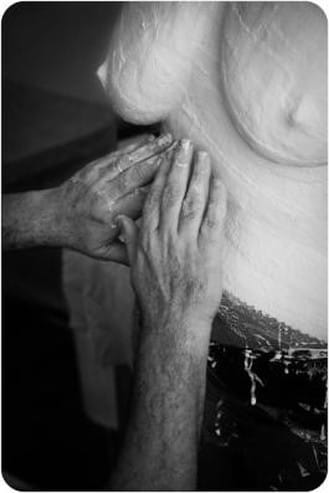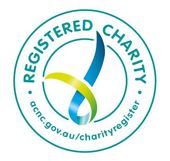|
Your journey through breast reconstruction can be a difficult and very lonely time. Your friends and family, who have been such wonderful supports for you, will be seeing your appearance returned to the person they knew before cancer came into your life. Your health improves, your energy is up, your hair has grown back. You might be returning to your previous activities and returning to work. But we know you may not be feeling as strong and recovered as you look.
The thought of removing such a beautiful and private part of your body is likely to be difficult to accept. Lets face it, your breasts have developed with you since we were a young girl and may have played a starring role in your intimate life and nurturing your babies. For many women the shape and volume of their breasts makes them feel feminine and fills out their clothes. So for some women it is important to manage this part of their journey sensitively. Sadly for many women it can all happen so quickly, and diagnosis to mastectomy is a whirlwind with no time for making memories. Preparing emotionallyBreast reconstruction can take a long time and can affect you not only physically, but also emotionally, and have a huge impact on your self-esteem. You will have dark days when you wonder why you thought this was a good idea at all, and days you are so pleased that you have mounds to fill out your clothes. Just being aware of some of these challenges might assist your recovery.
Some women are fortunate to have the opportunity to give their breasts a bit of a send-off. Of course this type of farewell is not for everyone. Other ladies are deep in despair and struggle to imagine life without breasts, or with reconstructed breasts. Every woman manages this in her own way, some of the following ways to create memories might be appealing to you. |
Making some memories
|
Photo shoot
Some women like the idea of keeping a photo record of their original breasts. Hiring a photographer can give you beautiful images and sometimes even a day filled with pampering and lovely clothes. Others like the idea of a more intimate sessions with their partner. A photo record can stay with you forever and can help you during the ups and downs of this journey. Breast memory casting Having a plaster cast of breasts is a popular way to have a more tangible and artistic approach to memory making. It is cheap, you can do it yourself with the right supplies, or you can get in an expert. Your finished product can be painted, draped in a scarf or left in its natural glory. You can display your breast cast prominently or privately, you might find you change how you perceive this work of art over the period of your journey. Swimming Reconstructed breast do not have the sensitivity of your natural breasts. Often women may choose not to reconstruct a nipple because it will never react again to normal stimulus. Swimming can be a cathartic activity to celebrate the wonder of your body reacting to its environment. Farewell party Many women gather with their friends and celebrate their breasts with a boob party. Often this involves cake and imagination and lots of fun. Meditation or prayer Some ladies prefer a more personal approach to fare-welling their girls. Quiet meditation or prayer might be more your thing. No more prosthesis ritual If you have had a mastectomy and are preparing for a delayed reconstruction a "throwing away the prosthesis" party might be more your thing. Many ladies report this to be a wonderful time, giving away the hot and uncomfortable prosthesis can be a landmark worth celebrating. |
"I feel fortunate to have had a few months to prepare for mastectomy, but really didn't consider the impact till about 1 week before. Suddenly I felt an overwhelming need to do something special to try to keep with me a memory of my natural breasts. I am not usually this sentimental, but i suddenly felt the enormity of the surgery and was frightened that I would have regrets on the other side." Louise |
"I didn't realise it at the time how important these things would become. I am not sad every day, I look forward to having my reconstruction complete to feel feminine and beautiful again. It won't be the same I know, but I feel like with these small gestures I have fare-welled my breasts sensitively, acknowledging the part they played in my life." Member of the online group
Preparing for major surgery
- Smoking increases the potential for serious risks. It is advised that you plan to give up smoking and any nicotine therapy at least 2 months before surgery.
- You may be advised to stop taking certain medications such as non-steroidal anti-inflammatory drugs (NISADs), aspirin, or other aspirin-like medications that may interfere with blood clotting for a brief period before your surgery. You may also be asked to stop taking naturopathic substances such as garlic, ginko, ginseng and St John’s Wort, as they may affect clotting and anaesthesia. Be sure to tell your surgeon and anaesthetist everything you are taking and take their advice before stopping any medication.
- Avoid excessive alcohol prior to surgery.
- Eat a well-balanced diet including plenty of foods rich in vitamin C, which may help promote tissue healing.
- Exercise regularly to build energy, improve fitness and maintain strength.
- Ready your home, including preparing food and rearranging furniture if necessary.
- If necessary, arrange for someone to take care of your children while you are in the hospital.
- Make sure a relative or friend will drive you to and from the hospital. You will not be able to drive for a few weeks and should only consider doing so when you have healed sufficiently.
- You should not be alone for at least 24 hours after you arrive home.
- Arrange for help with shopping, housework and caring for any small children as you will be unable to do any heavy lifting or strenuous activity for several weeks.
Practical advice to prepare for surgery
Before your surgery
During your hospital stay
At home tips
- Once your surgery is booked in you might not see your surgeon again until the day of your surgery. So make sure you have all your questions answered. Don’t be afraid to contact your surgeon leading up to surgery though. It’s important for you to feel comfortable before surgery and not worried about the details.
- Make contact with your local breast care nurse well before your surgery.
- Some women have found it helpful to do something special before their surgery to remember their pre-surgery bodies. Sensitively taken photos or breast memory casting might help you to prepare to lose your breasts.
- Surgery can leave you feeling mentally and physically tired for many weeks. It’s a good idea to prepare some meals ahead or ask a friend or family member to look after the cooking and other household chores until you are completely up to it. It might suit you to employ a home cooking service
During your hospital stay
- A mastectomy can be a physically and emotionally traumatic event. You might find you will cry regularly until your body adjusts to your major surgery.
- Hospital beds can be uncomfortable after a few days in the same position. A sheep skin under your sheets increases your comfort. Also remember to take your own pillow, not only can you have a comfy pillow in hospital but you can use it to put between you and the seatbelt on the drive home.
- Head phones with easy listening music can help block out ward noise and be soothing if you can’t sleep.
- Constipation is your enemy. In hospital and at home eat a high fibre diet and get moving as soon as possible to encourage your system to work again. If nothing happens and you are concerned, don’t be shy to ask a nurse for relief, you don’t want to add to your discomfort.
- You might be seen by a physiotherapist a day or so after your surgery, you might not be too alert at this stage, so ask them for some written instructions and advice about exercises for when you get home.
- Your surgeon may or may not recommend a binding garment for your tummy area or your breast area for after surgery. This is a recommendation made by your own surgeon. Binders are usually worn every day for several weeks. It can be helpful to purchase another couple so you can keep them nice and fresh.
At home tips
- After you have healed and are comfortable, you might experience a bit of an emotional crash. This is common and you might like to talk to your breast care nurse or other supportive person. Just remember you will adjust and be ok.
- Ask for instructions or advice about lifting or raising your arms and when it will be safe to do these things. Don’t rush it. Have everything in reach, don’t strain your wounds.
- After your breast surgery there will be very little sensation on and around your breast area and the donor site if you had a tissue transfer. This can take a bit of getting used to and might cause you to feel down from time to time. Talking to other women who have had this procedure or a supportive partner who understands can help.
- When you are healed and allowed to remove any dressings or tape, massaging 2-3 times a day can help to soften the scars. Ask your surgeon or GP when it is safe to start massaging your wounds. Be gentle. Many women recommend oils.
- Some women are recommended to use silicone tape to help reduce the appearance of the scars. Ask your surgeon if they recommend this for you.
- You should ask your surgeon or nurse what they recommend about sleeping at home with your type of surgery. Sleeping comfortably can be a challenge if you need to maintain a banana shape till your tummy heals, some women recommend a recliner chair or therapeutic pillows or sleeping in a spare room if you are restless. If your surgery included your back as a donor site, this may present its own challenges.
- It’s nice to make a place at home where you can rest and heal without being disturbed, a little healing haven to rest, rest, rest.
- You will need peace and quiet, take a rain check on visitors until your strength returns.
- Even though it won’t seem like it, you will eventually recover and feel strong again
- Don’t be too concerned if your new breasts, belly button or tummy don’t look quite right after your initial surgery as almost everything can be fixed at revision surgery.
- Ask your breast care nurse or surgeon or the hospital physiotherapist for any tips on exercising post-surgery
What to pack for your hospital stay
|
Comfort in bed
Food and drinks
|
|








